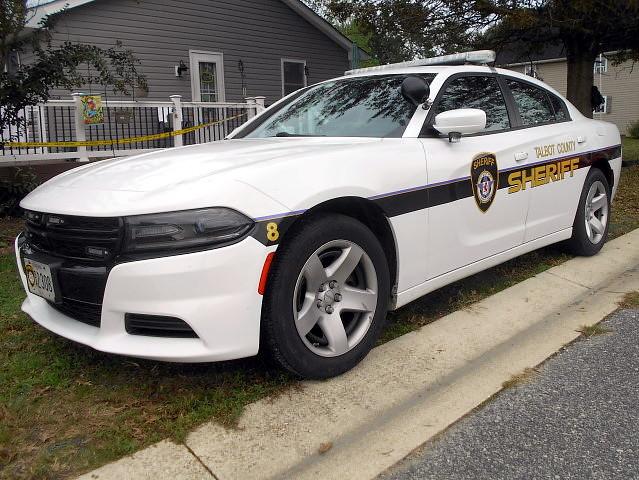As Maryland’s 23 counties and the city of Baltimore continue to work on state-mandated comprehensive police reforms, some of the state’s municipalities may be able to incorporate their own methods.
Sen. Ron Watson (D-Prince George’s) and Del. Lesley Lopez (D-Montgomery) have identical legislation that would allow 88 of the state’s 157 municipalities with police forces to create their own accountability boards.
“Who knows their community better?” Watson said in a brief interview Thursday. “The bill doesn’t force or require anybody to do anything. It gives [local officials] that flexibility to create the boards.”
The bill mirrors reforms that lawmakers passed in 2021 that require all counties and Baltimore City to not only form police accountability boards, but also administrative charging committees and trial boards to oversee alleged police misconduct and improve relationships with residents.
The charging committees review allegations brought from the public against a police officer and recommend possible disciplinary action. An officer can appeal a decision before a local trial board.
Similar to the accountability boards being established by counties, the proposed municipal boards would set a budget, pick the number of members on each body, appoint a chair with “experience relevant to the position” and establish procedures for record-keeping.
The boards cannot include an active duty police officer as a member and the overall membership should reflect the racial, gender and cultural diversity of the municipality.
Municipalities can decide the size of their accountability boards, which have varied so far at the county level. For example, Baltimore City has 15 members on its police board. Prince George’s County designated 11 members and Washington County has nine.
Municipal charging committees would have five members – the chair of accountability board or a person chosen by the chair, two residents selected by the board and two residents appointed by the chief executive officer of the county.
Residents would also be appointed to serve on a local trial board, but not those who serve on the accountability board or charging committee.
If municipal officials decide to create an accountability board, the panel must hold quarterly meetings and submit a report to the local government by Dec. 31 each year that identifies any trends in the disciplinary process and offer recommendations on policy changes to improve accountability.
Both bills were considered at public hearings in House and Senate committees last week.
Bowie Police Chief John Nesky, who supports the legislation, offered at least one amendment that would allow residents from small municipalities to serve on a county police accountability board “that would hear cases that affect their own officers [from] their own municipality.”
Community oversight
Not everyone agrees with the municipal concept.
Beverly John, a member of Progressive Maryland and a local activist in Prince George’s County, said in an interview Friday she expressed the same concerns with the county accountability boards.
John said an accountability board should be granted subpoena and investigatory powers that doesn’t rely simply on a law enforcement agency to hold itself accountable. She also said smaller municipalities could choose residents who may be more “pro-police” and may offer a balance to an accountability board.
“It’s a concern and a fear as well,” she said. “They might have more of an ability to get away with some things and the level of transparency may not be there. It can’t be let’s just pick a couple of people and friends that we know. It has to be a strong, community oversight to make sure accountability happens.”
John said the cost may deter some municipal officials from forming its own police accountability board and just relying on the its county.
A fiscal analysis noted that local expenditures in Annapolis could increase by nearly $911,000 in fiscal year 2024, if a local board were established there.
At the county level, it’s estimated to cost Prince George’s County about $1.4 million to fund its police accountability board and administrative charging committee to pay for about full-time workers, stipends for board members and operating and administrative costs.
The Maryland Association of Counties said the bill has “the potential to lessen administrative burden” on county-level police boards and committees.
Lopez said several municipal police forces are larger than those in their respective counties. They are:
City of Cumberland with 47 officers and Allegany County with 35
City of Cambridge with 41 and Dorchester County with 40
City of Easton with 45 and Talbot County with 37
Ocean City with 102 and Worchester County with 50
“It just doesn’t make structural and logistical sense to feed [an alleged municipal offense] into a county police department when it’s really a municipal issue,” she said in an interview. “We want to make sure all people…have a voice and deserve civilian oversight and not just grouped into an entire county police accountability boards.”
By William J. Ford



Rev.Ellsworth Tolliver says
Municipalities could start by implementing laws that are already on the books. Anton’s Law and the state mandate already have requirements for municipalities to have Zcitizrn Rrview Boards. Bother Chestertown Council and Kent County Commissioners have ignored this.